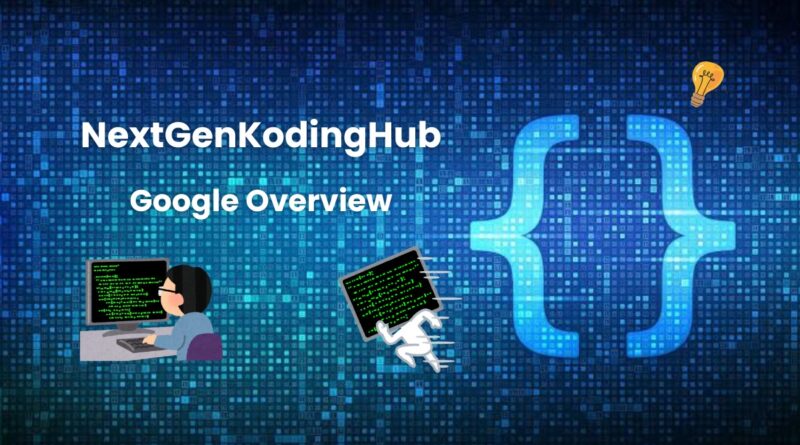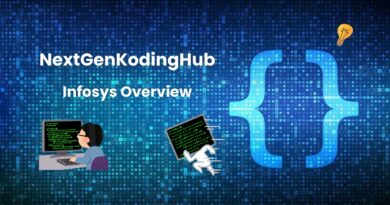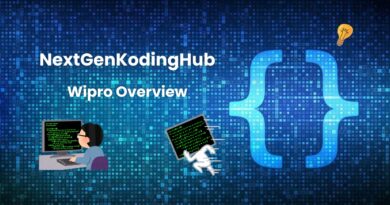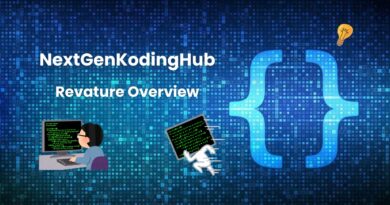Google – Overview
Google Overview
🏢 What Is Google?
Google LLC was founded in 1998 by Larry Page and Sergey Brin while they were at Stanford University. Since then, it has evolved from a simple search engine into a major global technology company. Its parent organization, Alphabet Inc., now oversees a broad portfolio that includes Google Search, Android, YouTube, cloud computing services, hardware products like Pixel and Nest, as well as innovative projects in autonomous vehicles (Waymo), biotechnology (Verily), and space exploration (Lunar XPRIZE).
Known for its data-driven innovation and ambitious “moonshot” projects, Google serves billions daily and pushes boundaries across industries.
📍 Headquarters & Global Reach
- Headquarters: Mountain View, California, USA (Googleplex)
- Global Offices: Over 150 offices in 70+ countries
- Employees: Around 190,000 as of 2024
- Data Centers & R&D: Global presence in North America, Europe, Asia, Latin America, Middle East
🌐 Official Links
📊 Business and Services
- Search & Advertising (AdWords, AdSense)
- YouTube & Content Platforms
- Android OS & Play Store
- Google Cloud Platform (GCP) & Workspace
- Hardware: Pixel phones, Nest devices, Chromebooks
- AI/ML: TensorFlow, Google Brain
- Other Bets: Waymo, DeepMind, Verily, X (formerly Google X)
Google’s Hiring Process
👶 Freshers & New Grads Recruitment
Google hires new grads extensively from universities and internships programs. The typical process includes:
- Online or Recruiting Fair Application: Resume screening + referral or application
- Online Coding Assessment: 2–3 coding problems in Java, C++, or Python using platforms like Codility or HackerRank
- Phone/Virtual Technical Interviews: 2–3 rounds focused on DS/Algos, System Design basics
- On-site Interviews: 4–5 on-site interviews including coding, design, and behavioral rounds
🏆 Experienced Professionals Recruitment
Lateral hires follow a similar pattern, with more domain-specific interviews and deeper system-design discussions:
- Resume & coding screening
- Coding & system design interviews
- Leadership and product interviews
- HR/manager interviews to assess fit, career goals
📈 Coding & Exam Difficulty
💻 Sample Code Snippet: Longest Increasing Subsequence (Python)
|
1 2 3 4 5 6 7 8 9 10 11 12 13 14 15 16 17 18 19 20 |
def length_of_lis(nums): from bisect import bisect_left dp = [] for x in nums: # Find index to insert/replace in dp to maintain increasing subsequence i = bisect_left(dp, x) if i == len(dp): dp.append(x) # Extend the LIS else: dp[i] = x # Replace to keep dp minimal return len(dp) # ----------------------------- # Example usage # ----------------------------- if __name__ == "__main__": arr = [10, 9, 2, 5, 3, 7, 101, 18] result = length_of_lis(arr) print("Input array:", arr) print("Length of Longest Increasing Subsequence is:", result) |
📚 Aptitude & Logical Rounds (where applicable)
While Google primarily focuses on coding and design, some roles may involve product or analytical tests requiring logical thinking and model-based problem-solving.
📝 Essay & Written Communication
For roles in policy, research, or product management, candidates may submit design documents, essays, or conduct case write-ups to demonstrate thorough thinking and structured communication.
🧩 Technical & Behavioral Interviews
- Coding: DS/Algos questions requiring efficient, clean code
- System Design: For mid–senior roles, expect large-scale design (distributed systems)
- Behavioral: Leadership, teamwork, conflict resolution, Googleyness
🏢 How Google Hires
🎓 Campus & University Hiring
Google runs global university outreach, internships, and student programs, providing early access to candidates through onsite events and virtual hackathons.
⚡ Early Career Programs
Programs like STEP, Associate Product Manager (APM), University Engineering Practicum, and Cloud OnBoard enable quick paths from student to full-time hire.
🔄 Lateral Hiring & Technical Leadership
Experienced hiring evaluates technical depth, impact scope, leadership, and product vision, often over multiple rounds.
🎯 Coding Exam Strategy & Preparation
🛠️ Practice Coding Problems
- Dynamic programming: LIS, knapsack, edit distance
- Graph: BFS, DFS, shortest paths, connectivity
- String + array problems: sliding windows, two pointers
- Advanced recursion and memoization
📊 System Design Preparation
For senior roles, focus on designing scalable services (e.g., designing URL shortener, chat service); use resources like Grokking the System Design Interview.
✍️ Written & Design Documentation
Practice writing proposals and architectural designs clearly and concisely, with diagrams if needed.
🎙️ Interview Readiness
- Mock coding rounds
- Design interviews practice with peer reviews
- Behavioral prep using STAR stories from past team experiences
🌐 Company Culture & Leadership
👤 Leadership Structure
CEO of Alphabet & Google: Sundar Pichai
Founders: Larry Page & Sergey Brin
Key execs include Ruth Porat (CFO), Thomas Kurian (GCP CEO)
🤝 Values & Ethics
Google operates under principles of innovation, open information, user privacy, and sustainability. It is committed to diversity, renewable energy, and AI ethics.
📉 Business Performance & Market Position
📅 Recent Financial Highlights
- 2023 Revenue: $280 billion, YoY growth 10%
- Google Cloud: $30+ billion annual revenue
- YouTube Advertising and Cloud leading growth verticals
🌍 Market Position
Google commands over 90% of global search market share. Google Cloud is the third-largest cloud provider after AWS and Azure. YouTube leads global video streaming.
📅 Recent Events & Celebrations of Google
- Google I/O 2024: Announced generative AI features in Search, Pixel AI, new Android beta
- Developer Student Clubs Summit 2024: Held India-specific hackathon events with 2,000+ student developers
- Pride Month Celebrations: Global events and internal campaigns promoting LGBTQ+ inclusion
🚀 Recent Projects & Case Studies of Google
1. Gemini AI Integration Across Google Products
Google launched the next-gen Gemini AI architecture, embedding capabilities into Search (AI summaries), Workspace (smart chips), and Bard (multi-modal intelligence). This project improved user experience, accuracy, and content generation reliability.
2. Anthos Multi-Cloud Platform Expansion
Anthos enables hybrid cloud deployment across GCP, AWS, Azure. Recent updates added support for AI pipelines and built-in security scanning, helping enterprises standardize infrastructure management.
3. Project Iris – Quantum Computing Research
Under Project Iris, Google released Sycamore v2 quantum processor for research on quantum error correction. The platform advanced industry leadership in NISQ computing and opened APIs for researcher collaboration.
4. Waymo One: Self-Driving Taxi Service
Waymo launched commercial self-driving taxis in Phoenix and San Francisco. Recent enhancements improved urban perception and AV safety by 30% in mixed-traffic scenarios, making it one of the most advanced public automated fleets worldwide.
5. Project Taara: Optical Wireless Internet in Sub-Saharan Africa
Google’s Project Taara uses optical wireless links to provide high-speed broadband to underserved communities in Africa. The initiative achieved over 20 Gbps throughput over 20 km links, improving regional connectivity.
🔎 Summary for Job Aspirants
Google is highly selective, focusing on algorithms, system design, and behavioral aptitude. Strong preparation, including mock interviews, deep coding mastery, and polished behavioral narratives, is essential. Familiarity with cutting-edge product use cases and vision-setting can give candidates an edge.
🙌 Final Note
Joining Google means becoming part of a company driven by innovation, scale, and global influence. With a disciplined preparation path—technical excellence, design thinking, and clear communication—you can stand out in Google’s highly competitive recruitment process. Best of luck!




